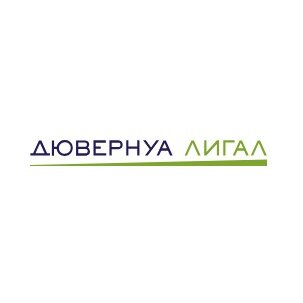Best Merger & Acquisition Lawyers in St Petersburg
Share your needs with us, get contacted by law firms.
Free. Takes 2 min.
List of the best lawyers in St Petersburg, Russia
About Merger & Acquisition Law in St Petersburg, Russia
Merger and Acquisition (M&A) law in St. Petersburg, Russia, is largely influenced by the overarching federal laws that regulate corporate mergers, consolidations, acquisitions, and divestitures in the entire Russian Federation. These transactions typically involve complex legal and financial considerations and are governed by Russian civil law, particularly the Civil Code of the Russian Federation, along with specific federal laws such as the Federal Law on Joint Stock Companies and the Federal Law on the Protection of Competition. In addition, when dealing with M&A activities in St. Petersburg, local regulations and the regulatory authorities in the region may also play a role in the process.
Why You May Need a Lawyer
Clients typically seek legal assistance in M&A transactions to ensure compliance with Russian law, to facilitate successful negotiations, and to protect their financial and legal interests. Legal experts are crucial in structuring the deal, conducting due diligence, preparing transactional documents, and addressing antitrust concerns. Lawyers also assist in navigating the complexities related to labor law, intellectual property, real estate, and tax implications that may arise during an M&A transaction. Moreover, with St. Petersburg's strategic location and economic significance, local legal expertise is especially valuable in cross-border M&A transactions and those involving strategic industries or state interests.
Local Laws Overview
The key aspects of local laws pertaining to M&A in St. Petersburg revolve around the legal framework set forth by the federal government but may also incorporate regional regulations that facilitate the registration and execution of corporate changes. This includes compliance with antitrust laws to prevent monopolistic practices and ensure fair competition, adherence to corporate governance standards, the necessity for approvals from Federal Antimonopoly Service (FAS), and compliance with the legal requirements for changes in ownership or control of businesses, especially in strategic sectors. Additionally, understanding local nuances, such as registration procedures with the St. Petersburg Chamber of Commerce and Industry or other local regulatory bodies, can be crucial.
Frequently Asked Questions
What is the difference between a merger and an acquisition?
A merger typically involves two companies combining to form a new entity, while an acquisition usually involves one company taking over another. In both cases, resources and operations may become consolidated.
How are M&A transactions regulated in Russia?
M&A transactions in Russia are regulated by federal laws which include, among others, the Civil Code, the Federal Law on Joint Stock Companies, and the Federal Law on the Protection of Competition. Specific procedures are outlined to safeguard shareholders' rights and ensure fair competition.
Do I need regulatory approval for an M&A deal in Russia?
Yes, depending on the size and impact of the transaction, you may need approval from the Federal Antimonopoly Service (FAS) or other regulatory authorities.
How important is due diligence in an M&A transaction?
Due diligence is a critical step in the M&A process. It involves a comprehensive review of the target company's legal, financial, and business circumstances and significantly reduces the risks involved in the transaction.
What are some common issues encountered during M&A transactions in St. Petersburg?
Some common issues include valuation disputes, regulatory compliance, antitrust concerns, cultural differences in cross-border transactions, and integration challenges following the merger or acquisition.
Can foreign companies acquire businesses in St. Petersburg, Russia?
Yes, foreign companies can acquire businesses in Russia, but they may face additional regulatory scrutiny and restrictions, especially if the target company operates in a strategic industry.
What are strategic industries, and why are they important in M&A?
Strategic industries are sectors that are critical to national security and the economy, such as defense, energy, and telecommunications. M&A in these fields can be subject to additional governmental controls and restrictions.
Are there special considerations for M&A involving public companies in Russia?
Yes, there are additional regulations and disclosure requirements for M&A involving public companies to protect the interests of shareholders and the integrity of the securities market.
What role does the Federal Antimonopoly Service play in M&A transactions?
The Federal Antimonopoly Service (FAS) plays a key role in regulating M&A transactions to prevent the creation of monopolies and maintain competition. It reviews and approves large transactions and those that may impact the competitive landscape.
How can a local M&A lawyer in St. Petersburg help with my transaction?
A local lawyer can provide invaluable advice on local regulations, assist with drafting and negotiating transaction documents, manage due diligence processes, and ensure that the transaction complies with all Russian and local legal requirements.
Additional Resources
Individuals seeking legal advice in the field of M&A in St. Petersburg may find the following resources helpful: the St. Petersburg Chamber of Commerce and Industry, the Federal Antimonopoly Service (FAS), and the Russian Corporate Counsel Association. Furthermore, English versions of the federal laws, guides on investment in Russia, and information on business regulations may be obtained from the Ministry of Economic Development website.
Next Steps
If you require legal assistance in an M&A transaction in St. Petersburg, the suggested next steps include seeking out a reputable law firm that specializes in corporate law and M&A transactions. Scheduling a consultation will help you understand the specific legal requirements of your case. Moreover, ensure that the selected legal representation has experience with both local and federal M&A regulations to provide comprehensive guidance throughout your transaction.
Lawzana helps you find the best lawyers and law firms in St Petersburg through a curated and pre-screened list of qualified legal professionals. Our platform offers rankings and detailed profiles of attorneys and law firms, allowing you to compare based on practice areas, including Merger & Acquisition, experience, and client feedback.
Each profile includes a description of the firm's areas of practice, client reviews, team members and partners, year of establishment, spoken languages, office locations, contact information, social media presence, and any published articles or resources. Most firms on our platform speak English and are experienced in both local and international legal matters.
Get a quote from top-rated law firms in St Petersburg, Russia — quickly, securely, and without unnecessary hassle.
Disclaimer:
The information provided on this page is for general informational purposes only and does not constitute legal advice. While we strive to ensure the accuracy and relevance of the content, legal information may change over time, and interpretations of the law can vary. You should always consult with a qualified legal professional for advice specific to your situation.
We disclaim all liability for actions taken or not taken based on the content of this page. If you believe any information is incorrect or outdated, please contact us, and we will review and update it where appropriate.














